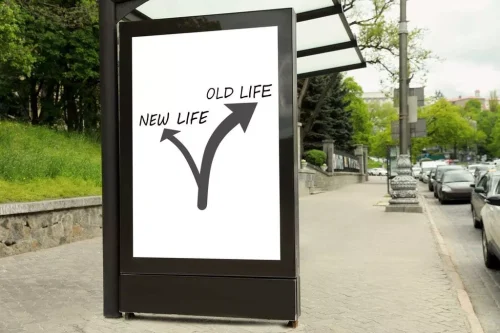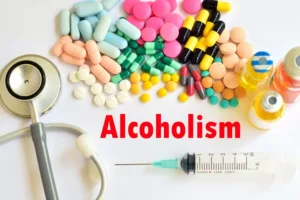
Creating a life that’s not just sober but vibrant and fulfilling is at the core of our final episode. I guide you through defining personal values, setting goals for connection, and practicing self-compassion and resilience. How to celebrate your progress for more inspiration and encouragement for your journey ahead. It’s a common misconception that crowded spaces eliminate loneliness. Even people who are rarely physically alone or who are in long-lasting relationships can experience loneliness.
How to Cope With Loneliness in Recovery

If you’ve put in the work to be comfortable with your solitude and yet still experiencing loneliness, here are some in-depth articles with recommendations. This comprehensive coaching program will help you overcome your loneliness and thrive in your Sobriety. Beginning recovery from opioid addiction with effective treatment is the best way to improve your chances of long-term success. Tips to combat boredom in recovery include working toward a goal or focusing your mind on a new hobby. Once you do return to work, it’s important to create a budget and take steps to safeguard yourself as work stress can be a relapse trigger.
Reach Out to Your Support System
A structured routine will help you achieve other goals in your life, whether they are short-term (like being on time for work) or long-term (like going back to school and changing careers). The endorphins your body releases will make you feel better naturally. Eating and sleeping properly will also help keep your body and mind in shape to manage your HALT (Hungry, Angry, Lonely, and Tired) emotions.
Take Advantage of Great Oaks’ Continuing Care
Maybe this looks like adopting a cat, offering assistance to an elderly neighbor, volunteering at an after-school mentor program, etc. If any area of your life is out of control, it will not help you maintain lasting sobriety. Having a chaotic or disorganized lifestyle can also hinder your recovery. It’s important to develop a structured daily https://ecosoberhouse.com/ and weekly schedule and stick to it. Hosted by therapist Amy Morin, LCSW, this episode of The Verywell Mind Podcast shares how to avoid repeating mistakes and build better habits. If PAWS is severe or if you’re experiencing prolonged symptoms, a medical professional can help you work through them and remain in recovery without relapse.
Some people are lonely because of their addiction, and some become addicted because of loneliness. Once sign up, you’ll receive exclusive access to my coaching podcast series. The program will be available through a private link sent to your email, allowing you to listen from anywhere, at any time.

Getting support doesn’t have to mean going to rehab, although that is an option. Support can also look like joining in-person and online support groups. One 2020 study found potential benefits of combining in-person and online support methods. This broader definition acknowledges that different people have different paths to recovery and that what works for one person may not work for another. You are bound to meet new people who share your interests — and maybe feel good about contributing to your community.
Connect With Your Support Groups, Sponsor, and Counselors Online
- Depending on the severity of the addiction or substance being used, a medically supervised detox may be necessary to safely help you.
- If you’re suffering crushing loneliness, there are many ways you can deal with it.
- Maybe this looks like adopting a cat, offering assistance to an elderly neighbor, volunteering at an after-school mentor program, etc.
Small gestures of kindness can go a long way toward making people feel good being around you. These are just a few examples of how being alone allows you to explore, create, try new things, and be part of a larger community without excess stimulation. It’s also empowering to connect with your independent self and all the potential that allows. This can also be a great time to pour yourself into others who could benefit from your time and attention.

You may be around others but still feel like you are an island of your own. Sobriety can be a fixed-term goal like staying sober for a set period (such as Dry January), or a lifelong goal of staying sober from all substances. Bridges of Hope is a Joint Commission-accredited dual-diagnosis loneliness in sobriety substance abuse treatment program. We are licensed by the State of Indiana Department of Mental Health & Addiction. Become comfortable with who you are now, and who you are becoming. Keeping the positives in mind should make it easier to make new friends and reconnect with your community.
- Taking small, positive steps goes a long way toward building social and community connections.
- BetterHelp can connect you to an addiction and mental health counselor.
- The first thing to realize is that there is a difference between being alone and feeling lonely.
- Not only will exercise help you heal physically and get you into shape, but it will also boost your mood by raising your levels of endorphins and dopamine.
- Feeling lonely is a normal part of life, but that does not make it any more comfortable.
Check out Big Boards, which is a directory of the most popular forums. As mentioned, acceptance is so important because it allows you to acknowledge any mistakes you’ve made in your past and hold yourself accountable for those actions. It also allows you to accept who you are now and that each step is a step forward. Similarly, finding a sense of meaning helps give you tools to fight against loneliness and SUD.
- When an individual has spent a lot of time in their addiction, whether using with others or alone, the drugs or alcohol take the place of healthy interactions with other people.
- An AA sponsor will provide one-on-one support as you work through the 12 Steps.
- This acceptance decreases your sense of shame and allows you to focus on sobriety.
- Such symptoms are often related to mood and may include irritability, anxiety, depression, sleep problems, and fatigue.
- This includes attending support group meetings, avoiding triggers, and following your aftercare plan.